A French Press is a great way to make a strong cup of coffee. It’s fast and takes minimal hassle to operate. And you get multiple cups produced from each extraction cycle.
A press pot (brewing device) is affordable and doesn’t require paper filters or extra add-ons. It will run virtually forever.
While you can make awesome coffee this way, the devil is in the details. The ingredients matter, foremost. Fortunately, there are only two that you’ll need to get right.
Coffee and water. That’s it.
In this article, we’ll dig deep into the key characteristics that make the best coffee for French Press brewing. But if you’re simply looking for a recommendation, I’ll start by sharing a few of my favorites!
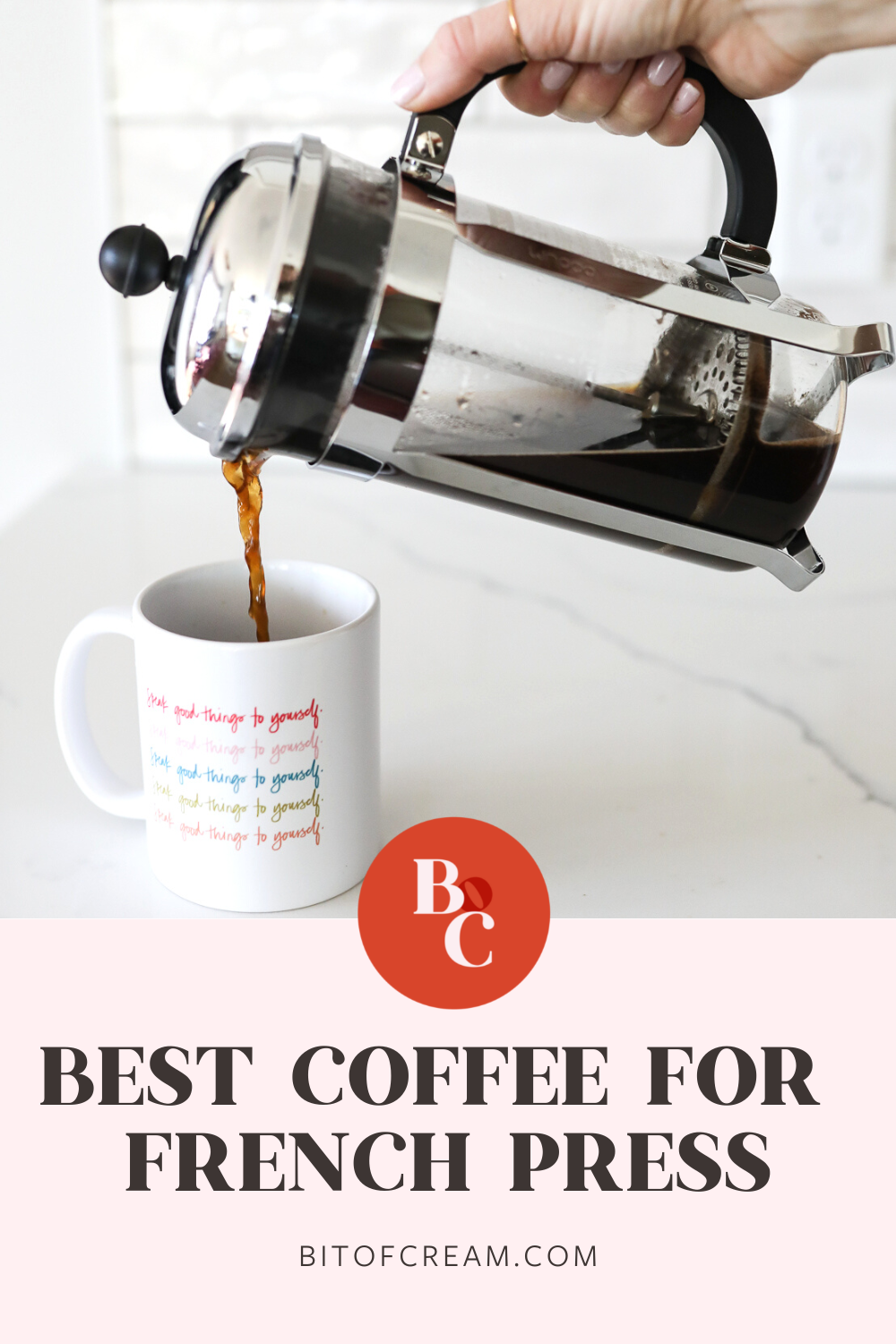
This post includes affiliate links.
The Best on the Market
- Stumptown Hair Bender – Best Overall
- Methodical Coffee Blue Boy – Most Unique
- Birch Coffee French Press Blend – Premium Option
Detailed Reviews Of Best Coffee For French Press
Best Coffee Overall – Stumptown Hair Bender
- Hair Bender: The sweet and balanced coffee that started it all. Hair Bender is our most celebrated blend with a flavor profile that shines no matter how you brew it!
- Flavor: Hair Bender relies on coffees from Latin America, Indonesia, and Africa to achieve a complex flavor profile with notes of sweet citrus, dark chocolate, and raisin.
I can’t think of another mass-market coffee blend that’s been as good as Hair Bender for so long. Roasting great coffee is one thing, and doing it at scale is another animal.
Whether you’re a newbie or a seasoned coffee vet, this blend will not disappoint. It’s incredibly versatile in how you can brew it, making it one of the best coffees for french press!
With Hair Bender, you’ll get a deep and complex flavor. It offers warm notes of chocolate, dark cherry, and toffee. The overall experience is smooth and creamy, although you’ll also get a hint of light citrus.
It’s a broad blend. Beans are sourced from Indonesia, Africa, and the Americas.
I can’t imagine how they manage their roasting operations on such a large scale, but somehow I’ve never received old coffee from this brand.
If you’re ever in Portland, OR – it’s worth making a pilgrimage to their old shop in SE or the Stumptown cafe downtown at the Ace Hotel.
Most Unique Coffee – Methodical Coffee Blue Boy
- Tickle & Thrill Your Taste Buds: Savor the chocolate, graham and brown sugar flavors of this bold-yet-smooth fresh roasted coffee.
- Ethically Sourced from Family Farms: Methodical Coffee is an artisanal coffee roaster that partners with Fair Trade co-ops & farms committed to sustainable practices.
Methodical may be the best small-time roaster you’ve never heard of. The Blue Boy blend is awesome, especially if you’re using a french press.
Why? It’s exceptionally smooth, and there’s virtually no bitterness! And beans that battle bitter are a big win for French Press users everywhere.
You’ll discover flavors of deep chocolate and brown sugar with Blue Boy. Also, and this is cool, you’ll find graham cracker flavor in each sip. I can’t think of another roast like it. It’s very rich.
These french press beans are sourced from 100 family farms in Guatemala and Colombia. The packaging is beautiful and unique, and their customer service is awesome too.
Premium Option – Birch Coffee French Press Blend
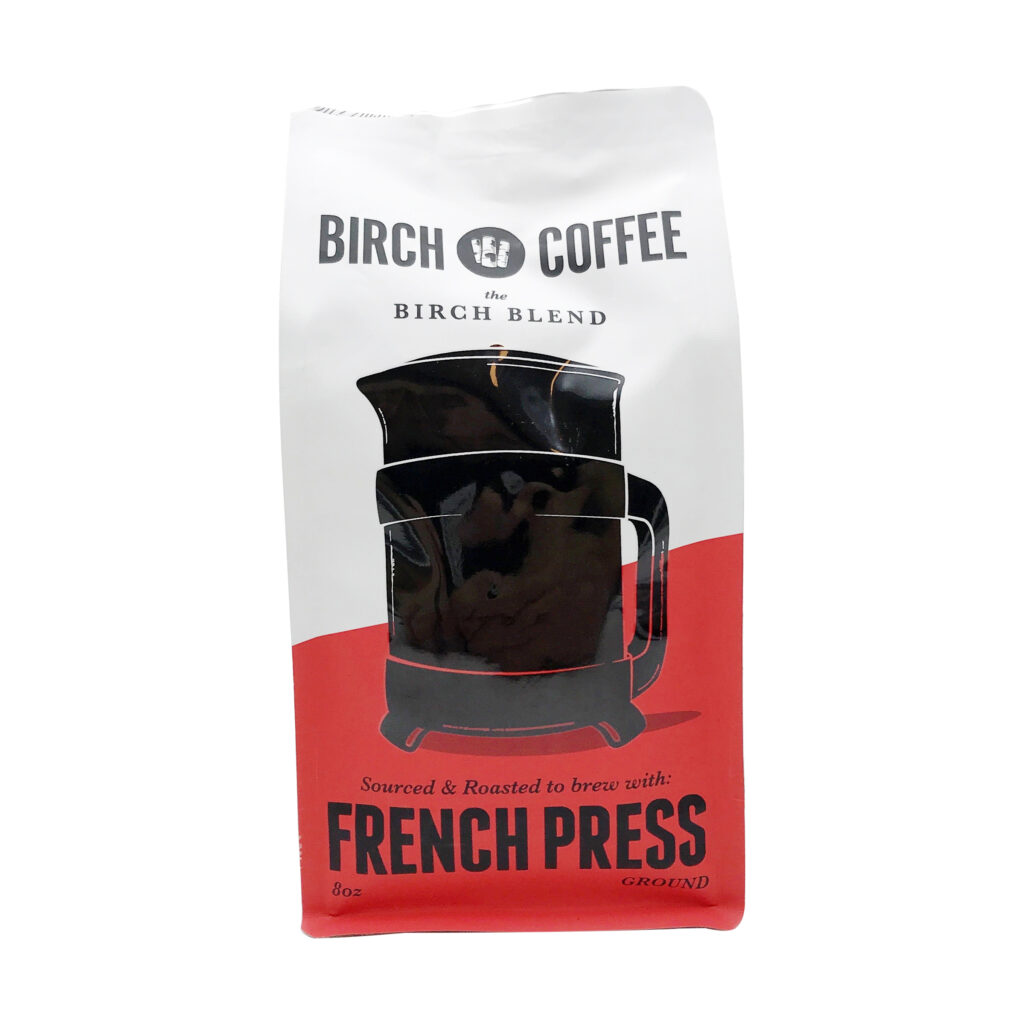
Whenever I’m lucky enough to visit NYC, Birch Coffee is a non-negotiable stop on my itinerary. There are few things finer than their coffee.
Birch created several single-origin and blended coffees with a specific brew method in mind – like French Press!
The French Press Brew is full-bodied and surprisingly clean for coffee prepared in this method. It’s a medium roast, so you’ll get chocolate and cocoa notes but also a fruitiness that you might expect from a lighter roast.
This is some of the finest home-brew coffee out there. It’s slightly more expensive than the other options I’ve suggested but absolutely worth trying. Be sure to check out their coffee stops in NY and Seoul.
Look for their periodic specialty roasts, which push the limits of what’s possible in coffee. For example, their Costa Rica geisha coffee will knock your socks off.
Dark Roast Coffee – Volcanica Dark Roast
- Sumatra Coffee is known for its smooth chocolate flavor with earthy undertones.
- Among the world's finest coffees displaying rich flavor, extraordinary full body and distinctively vibrant, low-key acidity.
The team at Volcanica has been in the coffee-making business for generations, originally as growers in Costa Rica. Today they are big on coffee education, and you’re certain to learn a thing or two if you pick up a bag of their Dark Roast blend.
This is their darkest coffee bean, and the flavor is deep!
Expect a rich and complex cup of coffee, with chocolate and caramel being the most pronounced. You’ll also notice a smoky quality that comes from the roast level.
Volcanica Dark Roast is made from a blend of Colombian, Guatemalan, and Indonesian coffee. The aromatics from this ground coffee is wild!
Medium Roast Coffee – Intelligentsia Frequency Blend
- Frequency Blend: Versatile and balanced blend that is easy-to-enjoy coffee with a smooth body. Hints of golden raisin and raw sugar accompany the flavor of molasses
- Direct Trade: Our commitment to direct trade allows us to cut out unnecessary importers and exporters, and enables us to truly partner with our growers to bring you the sweetest coffees in the world!
If you’re into specialty coffee, then you’ve probably heard of Intelligentsia. They were true pioneers. Even though they’re now owned by Peet’s, they still roast a darn good bean and makes a nice choice at a decent price point!
Although the Frequency Blend is recommended for a drip machine or pour-over, the flavor profile of the grounds is great for French Press too.
Look to taste golden raisins, molasses, and raw sugar. It’s a medium roast coffee and not as full-bodied as some of my other picks. If you think French Press coffee is usually too “chewy,” that might be a good thing.
Decaf Coffee – Kicking Horse Decaf Dark Roast
- Kick coffee decaffeinated with Swiss Water Process. The best of our blends: deep, dark, tip-top taste and a fine finish. Drink up and dream on!
I picked Kicking Horse because they use the Swiss Water process to decaffeinate their coffee. While many brands use synthetic chemicals to remove the caffeine, this method employs only water and heat. It’s a choice that reflects the company’s overall philosophy toward sustainability.
This coffee blend is sourced from Central and South America. It has a chocolatey complexion, and you may taste hazelnuts too.
Unlike many decaf grounds I’ve tried, the flavor and aroma from Kicking Horse are potent. The taste will linger in your mouth and can, at times, taste like bitter chocolate at the long end of a sip.
At the end of the day, I want my coffee to taste like coffee. Even if it’s decaf. Kicking Horse hits the mark on this, which not everyone does with decaf.
Subscription – Drink Trade
Drink Trade partners with 55+ local coffee roasters across the US. That means that you’ll get to try a variety of different roasts throughout your subscription.
Especially if you’re a new coffee drinker, gaining broad exposure to different roasters and roasts is a huge benefit. You’ll learn your preferences much faster this way.
What’s better is that Drink Trade considers your preferences when creating your subscription. They’ll match you with great coffee for French Press based on several personalized factors.
Like experience level, if you take it with sugar or milk, your favorite flavors, and if you grind your own beans.
Do Good – Purple Door Coffee Motivate Blend
If you’re the type who likes to make a difference with your purchases, look no further than Purple Door Coffee. This Denver-based roaster was created as a pathway to teach job and life skills. Sales of their coffee help transition members of the young homeless community off the street.
Their coffee is really good too, just look at all of the 5 star reviews! The Motivate Blend is a dark roast, although not quite so dark as others on this list. It’s balanced with notes of cocoa, baking spice, and toasted marshmallows which is perfect when you’re doing your french press brewing.
This is a great place to start if you want a darker roast that doesn’t taste scorched and carbon-y.
What To Look For
Roast Level
Whenever you’re brewing with a French Press, expect a cup of coffee that is bold and robust. The mouthfeel can get really heavy too. Soupy almost.
If you’re already into the intensity and fullness of french press, then using a dark roasted coffee bean can elevate those qualities.
Dark roast retains a lot of oils. When extracted in the brewing process, the extra oils enhance the density of the grounds.
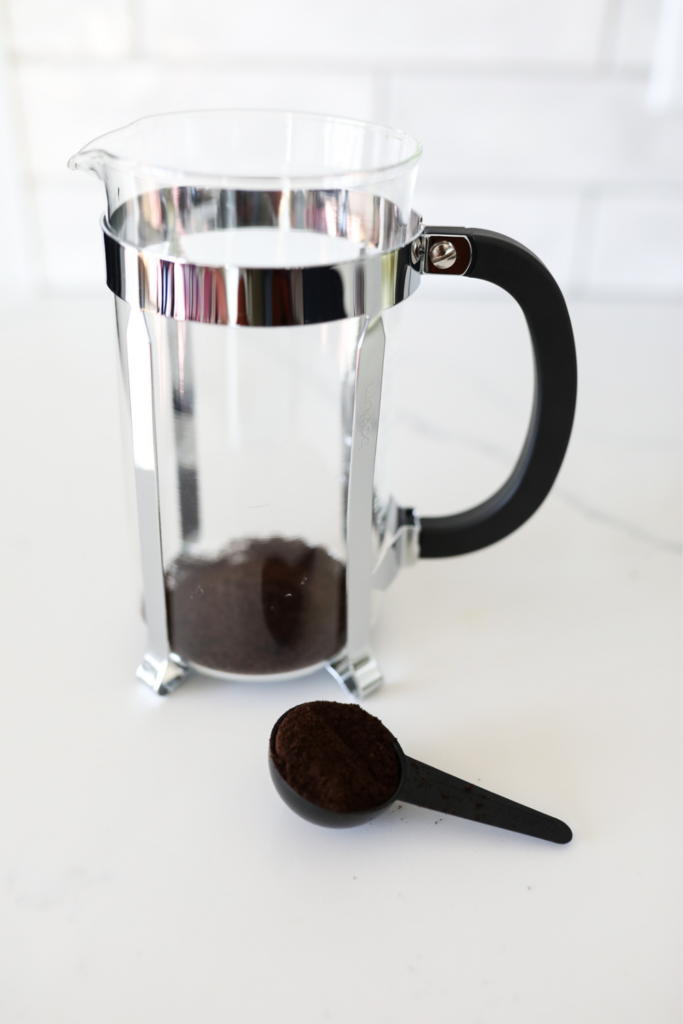
What’s the difference between a dark, medium, and light roast coffee bean?
The most obvious indicator is the color of the bean. Darker roasts are darker complexioned. Lighter roasts have a tan or blonde bean. Medium is somewhere in the middle.
The color tone of a roast is derived from the top internal temperature the bean reached when it was roasted. More temperature yields a “darker” roast. It also unlocks a different set of flavor characteristics.
Dark roast coffee tends to have what I would call “winter” flavors: chocolate, caramel, cinnamon, nutty, smoky, and cherry, to name a few. These are the type of flavors that motivate me to add milk and sugar, then curl up with a good book.
More dark usually means more bitterness. Another good reason to add milk.
Lighter roasts tend to be less intense and easier to drink black. The flavors you get from a light roast are brighter, more clear, and forward. Expect honey, vanilla, citrus, and floral tones like Jasmine or Chamomile.
If you want a cup where flavors are clear and well-defined, then there are probably better brewing methods than French Press. Try an Aeropress or Espresso machine instead.
The French Press extraction method creates a powerful cup, but the flavors tend to get muddied and mixed. For this reason, many people (myself included) prefer using a darker roast for French Press.
Origin
If roast level determines which flavors are unlocked, then the bean’s origin is what put those flavors there in the first place.
What is “origin?” Simply put, it’s where your coffee bean was grown.
There is a literal tonne of localized factors that determine what flavors grow into a coffee plant. Soil composition, elevation, and climate, just to name a few.
You can get exceptionally granular when distinguishing origin. Most of us don’t have a refined palette to determine a country of origin or a particular farm. Believe it or not, some people do.
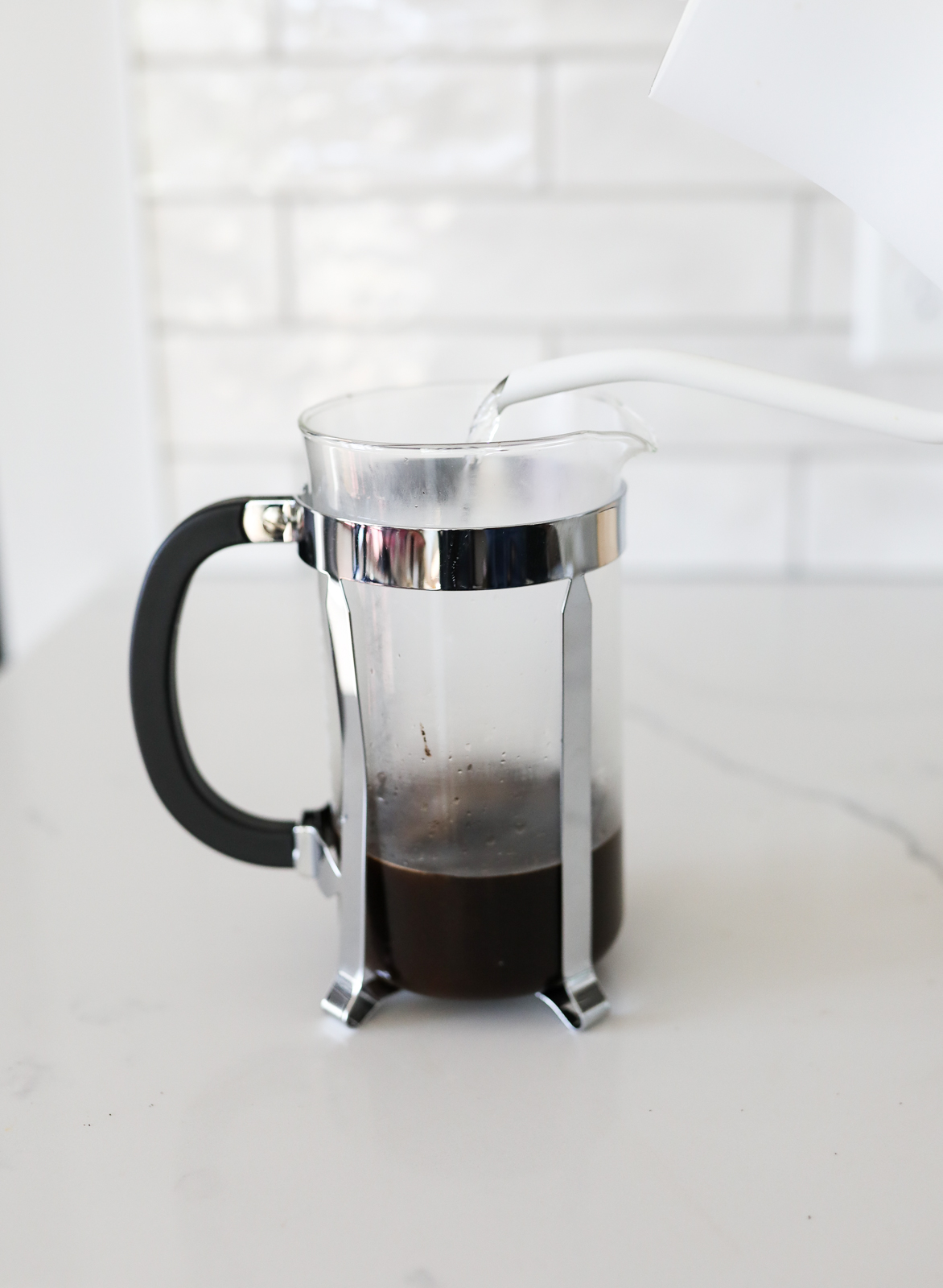
But, with a little practice, you may be able to pin a continental growing region based on the taste of the coffee.
For French Press, you’ll want to look for coffee grown in Central & South America. You’ll often find velvety milk chocolate tones, caramel, nuttiness, and sometimes even red wine.
Some people also like Indonesian coffee for French Press. Expect extreme earthiness, sometimes with dark cocoa undertones. It can be spicy and leathery. Sometimes you’ll even get a hint of tobacco.
In most cases, coffee roasters are selling blends. It’s less expensive and easier to “get right” than a single-origin roast. Why? Combing coffee from different regions as a “blend” means the roaster can balance the characteristics of each region.
My best advice is to always look for the tasting notes on the bag when you buy it.
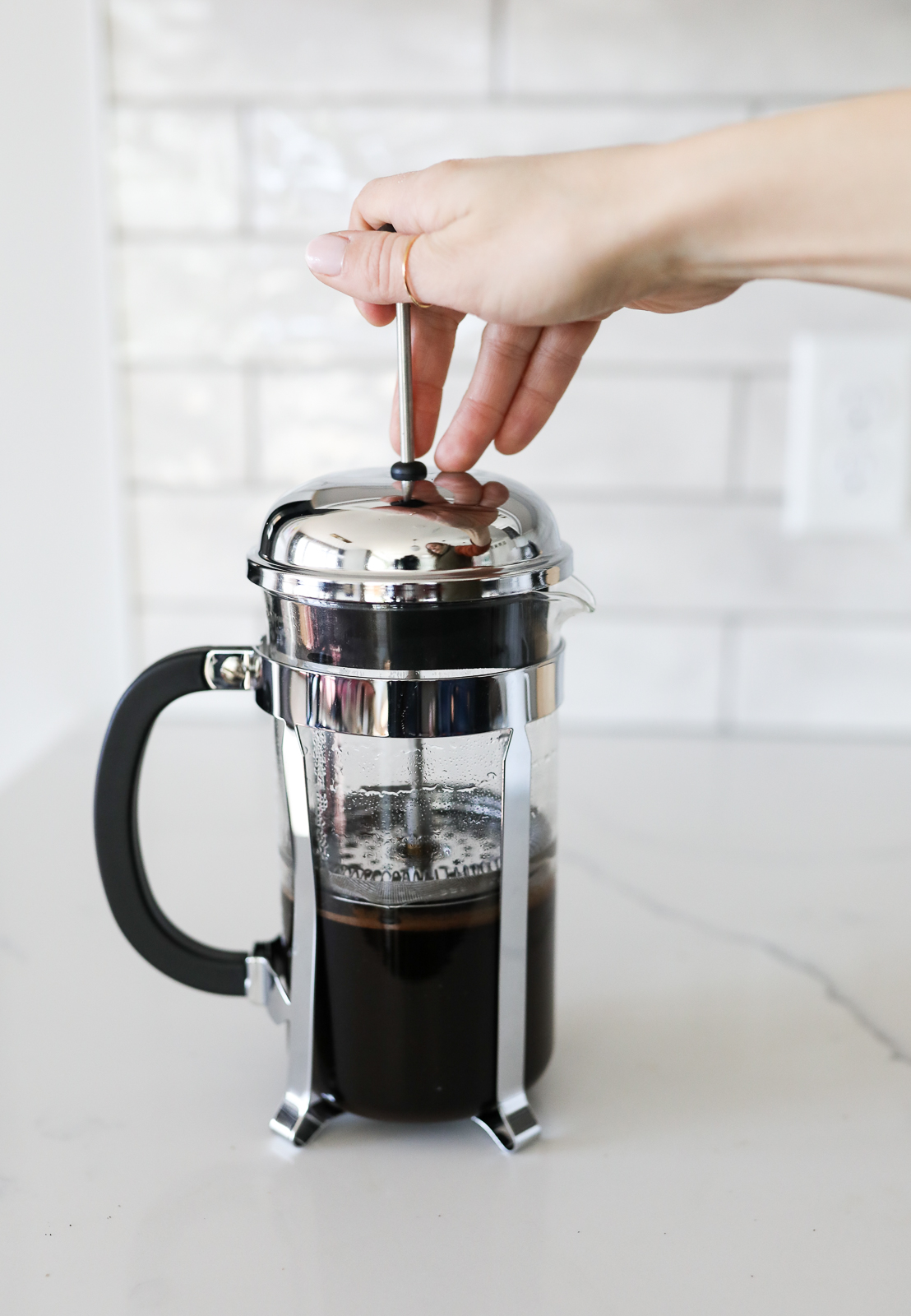
Coffee Bean Grind Size
If you’re buying whole coffee beans for French Press, you need a burr grinder handy and available.
Having beans ground to the right size consistently has everything to do with making a good cup of coffee. For that, a burr grinder will deliver. Every time.
If you’re currently using a blade grinder, compare the size of individual grounds closely. Some will be tiny. Others look like big nuggets. There are a few reasons why this is a major drawback.
With a French Press, you need a medium-to-coarse-sized grind. If the coffee is ground too fine, it will pass through the plunger screen and into your cup. You’ll soon be drinking coffee grinds. Yuck!
Another reason for consistency is that finer ground coffee extracts more quickly. And, the more extraction, the more bitter the resulting liquid becomes.
Aim for a coarse and consistent grind if you don’t want a bitter brew face while drinking your cup of joe.
You can buy coarse ground coffee at the store, but there is a definite advantage to grinding your own. Namely that the coffee will last longer and will taste better.
Coffee Freshness
Fresh Coffee beans will always give you a better result than old, stale ones.
Although green coffee will remain in good condition for 1-2 years, its lifespan greatly accelerates once roasted. The beans’ chemical composition starts to deteriorate, as do the flavors in the coffee.
If you’re looking for peak flavor, reach for whole-bean coffee roasted within the past 2-3 weeks. Because ground coffee has a greater surface area, it will become stale faster than whole beans.
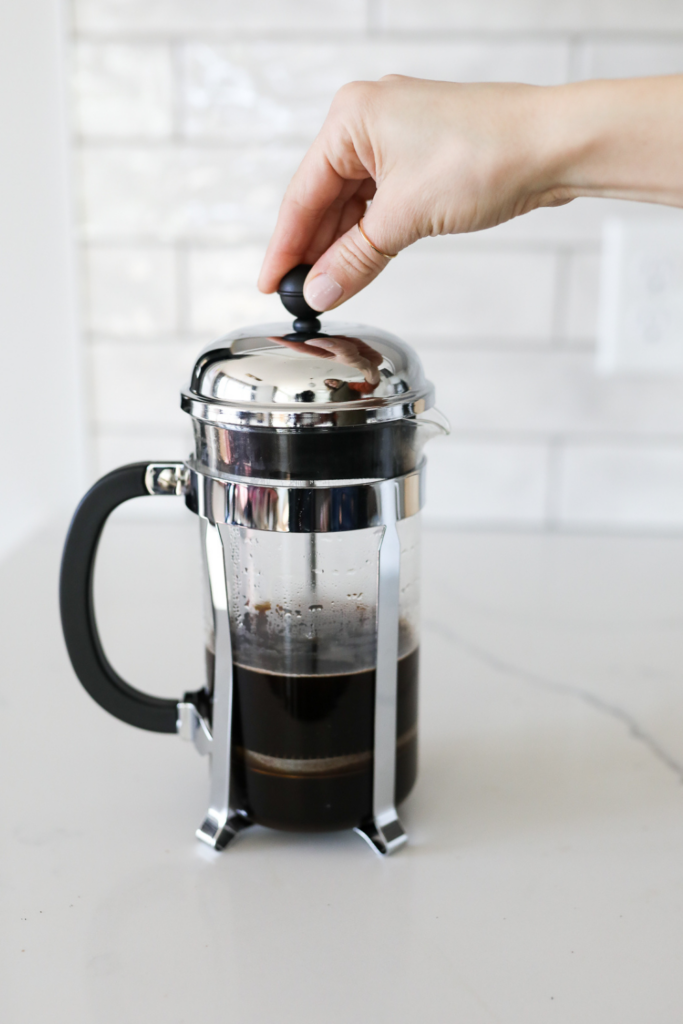
Most specialized roasters will print the roast date on their packaging.
Here’s another way to spot stale coffee. Roast coffee emits carbon dioxide. If a package is tightly vacuum sealed, that’s not a good sign. It means the coffee is no longer putting out gas and is likely quite old.
Tips & Tricks to Make the Best Coffee
- Water quality – Good water is equally important to coffee bean selection, in some cases more. Given that your coffee drink is >90% water, it makes sense that any weird flavors or contaminants present will color the cup’s flavor.
- Temperature – Try preheating your pump press with hot water before brewing. This helps so that the coffee doesn’t cool down too much before serving. Keep your water below boiling but still hot, about 200 F, to minimize the bitterness from over-extraction.
- Ratio – Use a 1:12 ratio of ground coffee to water for French Press. Use a digital scale to measure by weight for the best results.
- Time – Start your extraction timer as soon as you begin adding water. Let it run for 4 minutes, then slowly press down the grinds with the plunger. The entire plunging motion should take about 15 seconds to complete.
- Serve Quickly – When coffee extraction is complete, be sure to pour it in a cup quickly! Anything coffee left in the press will continue to extract – and the remaining drink can get very (..very) bitter.
French Press Coffee FAQ
Most people prefer dark roast coffee for french press. Look for beans with deep flavor tones like chocolate, nuttiness, cocoa, dark cherry, and caramel. They’ll mix effectively and stand out against any milk or sugar you add to the cup.
Use coarse-ground coffee beans for the french press. It should look similar to the size of coarse sea salt when prepared correctly.
Looking for more expert coffee guides? Check out these related posts!

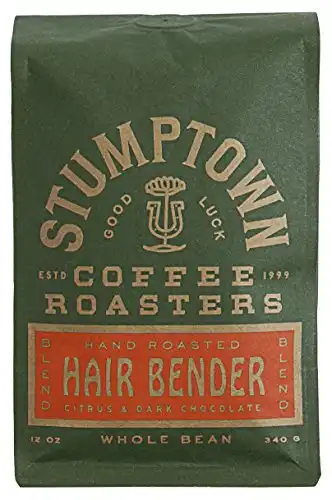
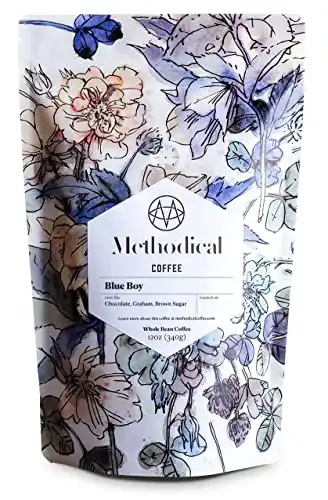
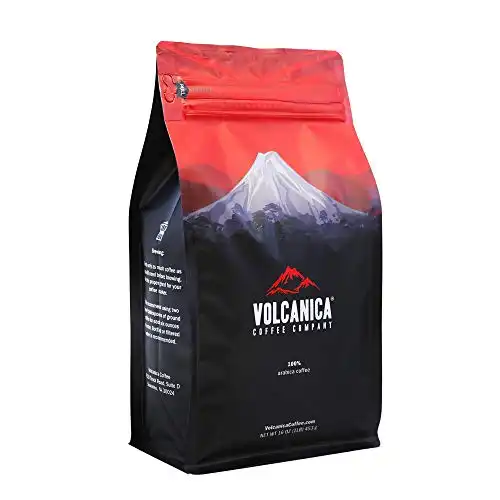
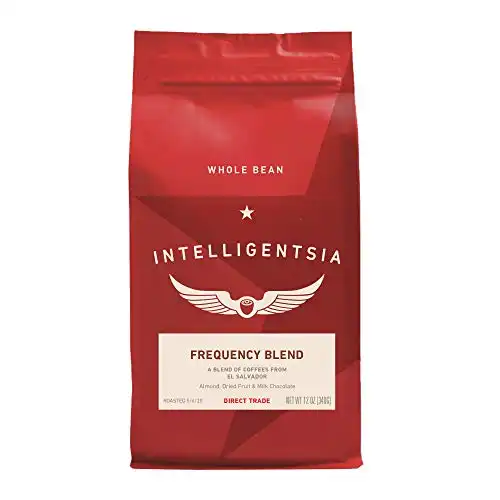
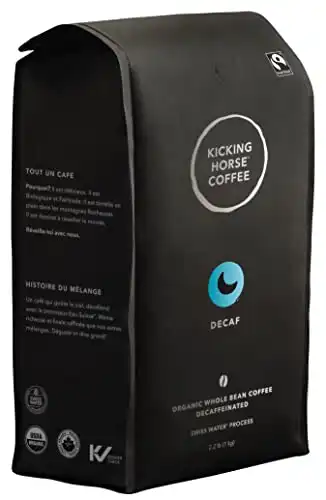
I’ve been using a French press for years and I think it’s the best way to have coffee. Thanks for your article. It was very informative.
I didn’t notice a recommendation on a grinder. I use a hand grinder at home and an electric bur grinder at the office.